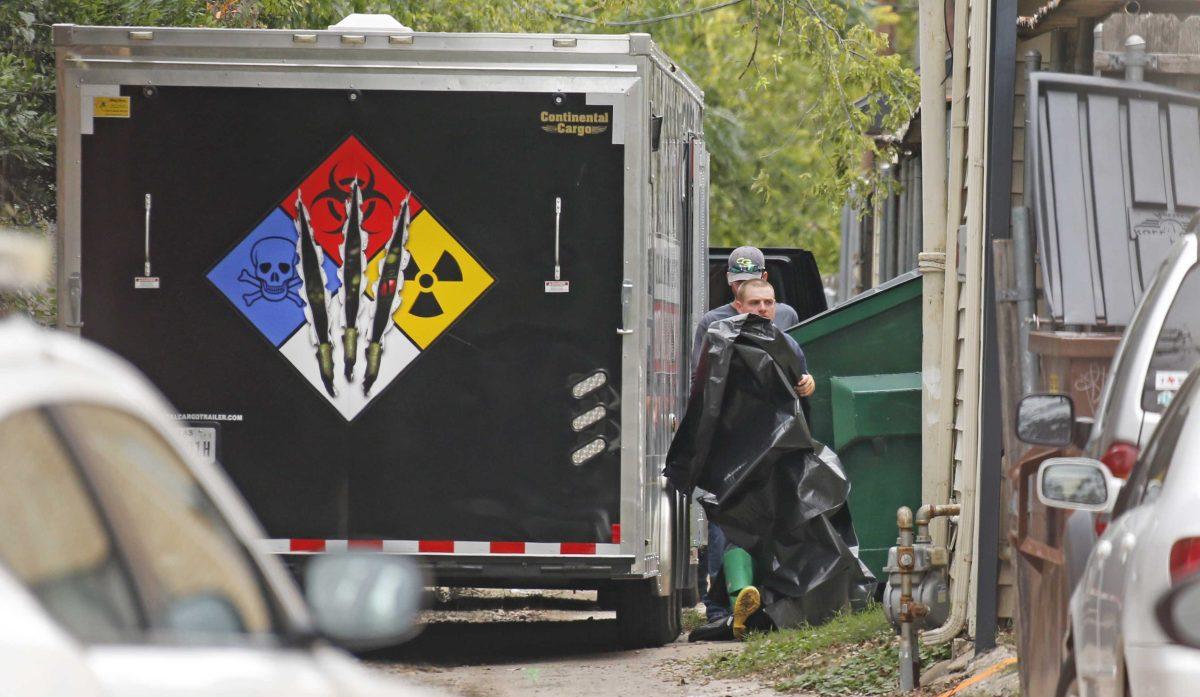As though we didn’t have enough issues, stressing about midterms, LSU football and just what in the world am I going to do for money when I graduate, there is also a litany of international crises ensuing.
More specifically, the Islamic State group is rampaging across Iraq and Syria, threatening the West with violence on a routine basis, and Ebola has torn West Africa apart with new cases emerging in Europe and the U.S.
Despite these crises, the U.S. still shares a relatively porous border with Mexico. Illegal immigration aside, the threats of both the Islamic State group and Ebola necessitate the immediate sealing of our southern border.
Just last week, the first person to be diagnosed with Ebola inside the U.S., Thomas Eric Duncan, passed away in Dallas. It’s now confirmed that a nurse working with Duncan has become infected, ostensibly because of a breach in safety protocols.
The Centers for Disease Control and Prevention has made numerous statements on just how difficult it is to transfer Ebola to another person, while in the same breath forecasting 1.4 million infections in Liberia and Sierra Leone by the end of January, with more than 60 percent dead.
That’s an exponential increase from the roughly 4,655 lab-confirmed cases at present.
Without an international travel ban on West Africa, there is a real chance infected persons will slip through the cracks and travel anywhere on the planet, such as Central America. It’s reasonable to assume that outside of the U.S., the screening process to check for Ebola symptoms at airports would be far less stringent.
The threat is credible enough that Marine Corps General John F. Kelly, commander of the U.S. Southern Command, which has military jurisdiction over the Caribbean and all land south of Mexico, felt it prudent to talk at length on the subject at National Defense University last Tuesday.
He spoke about the possibility of an outbreak in Central America, particularly in Guatemala, Honduras or El Salvador. The punch line is that there would be mass migrations in our direction as people flee from the disease.
“They will run away from Ebola, or if they suspect they are infected, they will try to get to the United States for treatment,” Gen. Kelly said.
When a high-ranking, decorated Marine with a major theater command says something is likely to happen, it’s typically wise to listen. If we are so reluctant to impose a travel ban, then the threat of a massive influx of a partially infected population should make any rationally thinking government want to seal its borders.
If that wasn’t enough, the JV team of radical jihadists, the Islamic State group, continues to terrorize the parts of Iraq and Syria they occupy and has, for all intents and purposes, issued a help-wanted ad for killing Westerners. Just last month, the U.S. had its first homeland terror incident since the emergence of the Islamic State group. In the same vein as the Fort Hood shooting, it’s being called an act of “workplace violence.”
In Oklahoma, a 54-year-old woman was beheaded by a former coworker who had recently converted to Islam and had taken to writing anti-American posts on his Facebook page. This came on the heels of the beheadings of several Western journalists by the Islamic State group and smacks of radical jihadism.
While there are no confirmed border crossings by the Islamic State group as of yet, one can imagine it’s not that difficult a task, taking into account approximately 11.5 million people have illegally crossed into the U.S. between 1980 and 2010.
Considering it’s the government’s primary role to protect us, it seems entirely reasonable to secure our southern border — you know, the thing that defines boundaries between sovereign states. These threats are credible. This administration might want to start doing its job.
Ryan McGehee is a 21-year-old political science, international studies and history senior from Zachary, Louisiana. You can reach him on Twitter @JRyanMcGehee.
Opinion: Close border to protect nation from Islamic State, Ebola
October 13, 2014
CG Environmental-Cleaning Guys hazmat team members puts up a tarp to shield the view in the alley near the residence of the Dallas woman who’s the first known person to have contracted Ebola in the U.S., Sunday, Oct. 12, 2014. (AP Photo/The Dallas Morning News, Louis DeLuca) MANDATORY CREDIT; MAGS OUT; TV OUT; INTERNET USE BY AP MEMBERS ONLY; NO SALES
More to Discover








